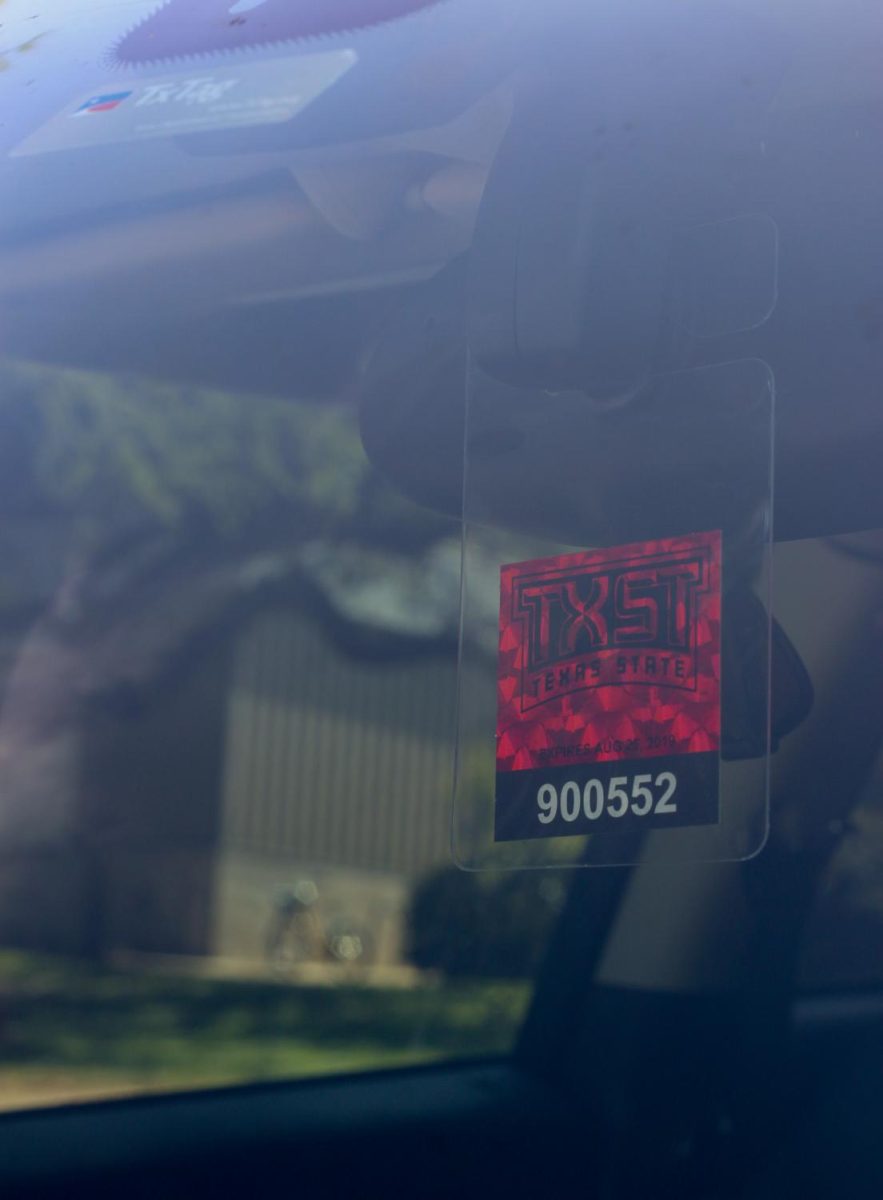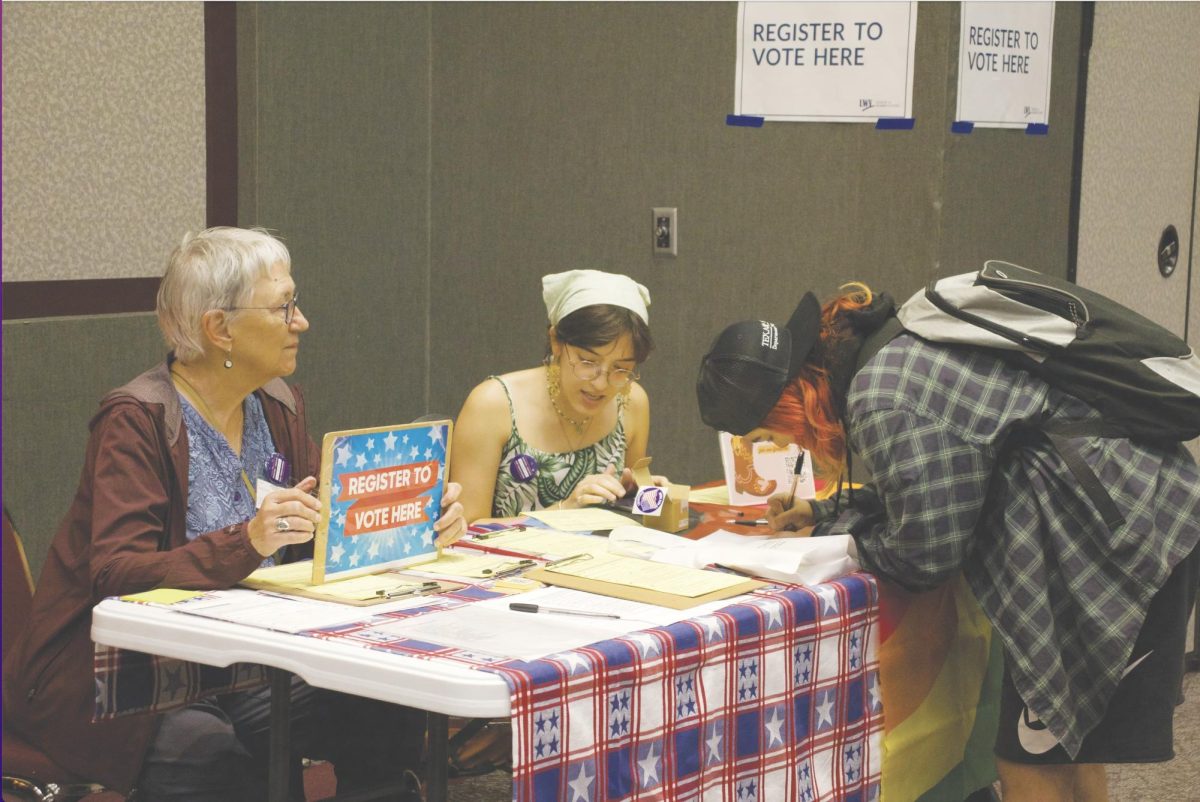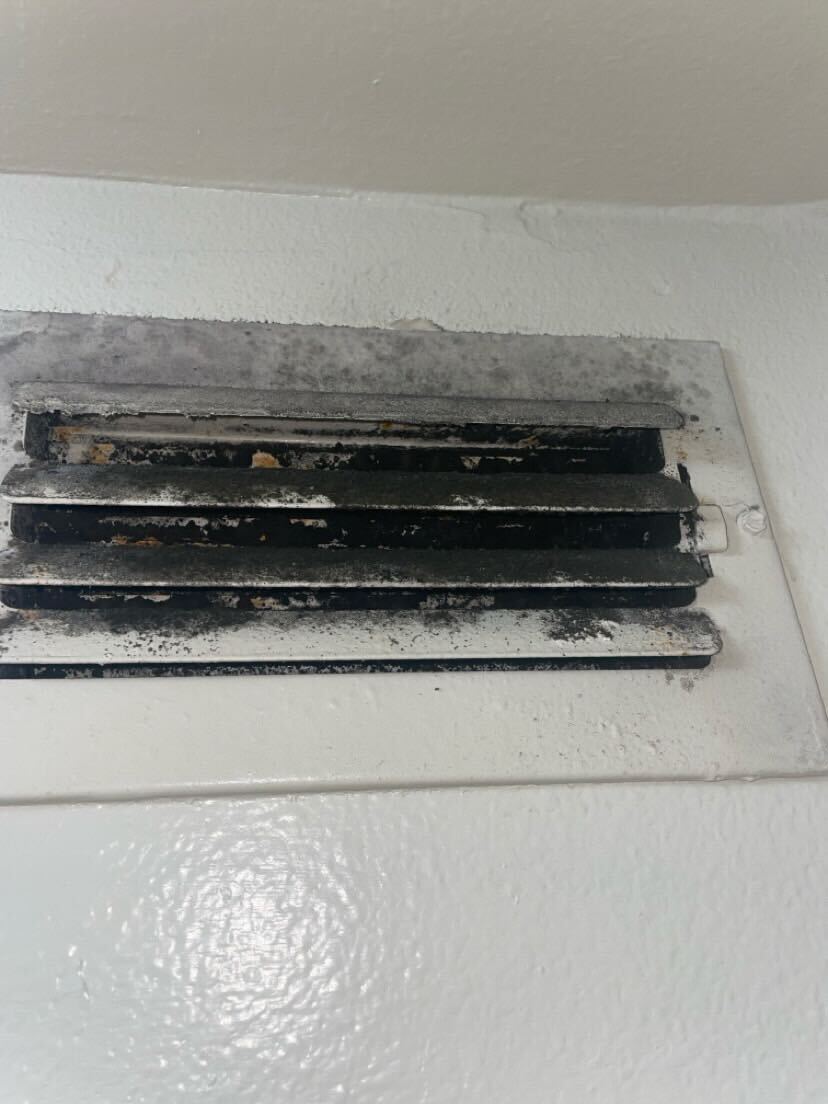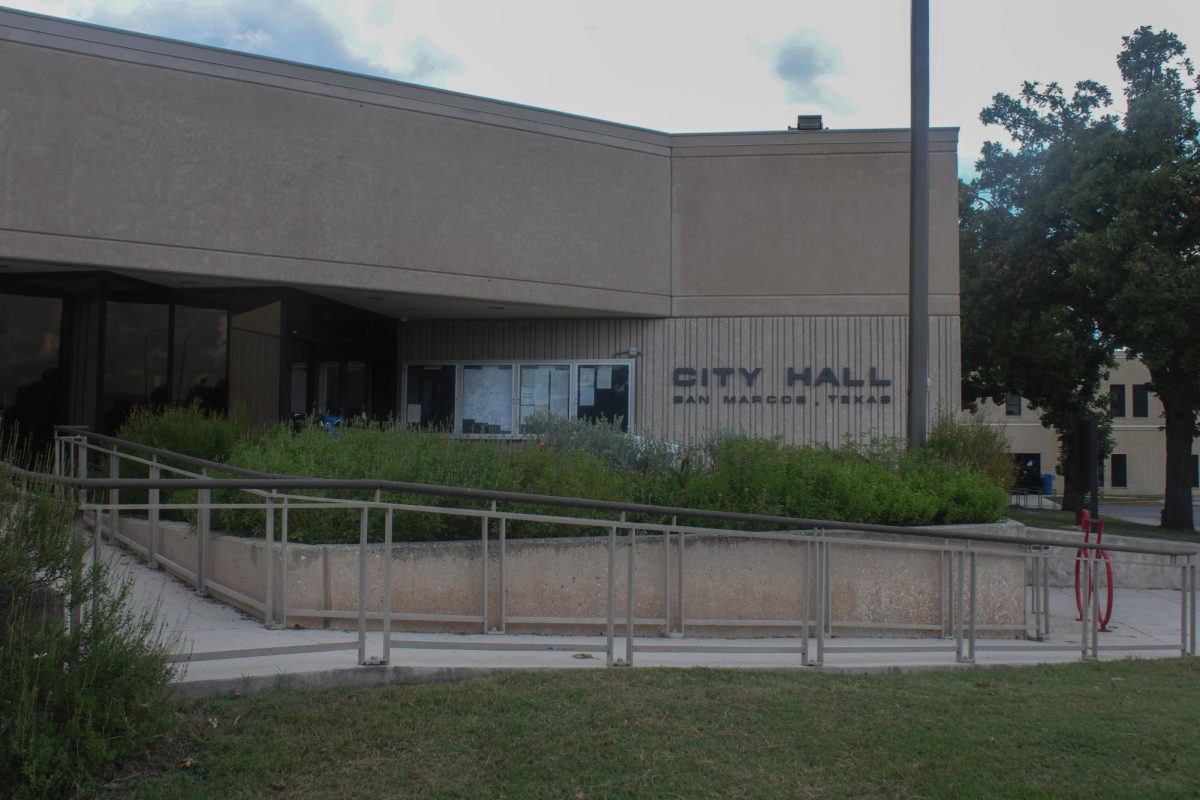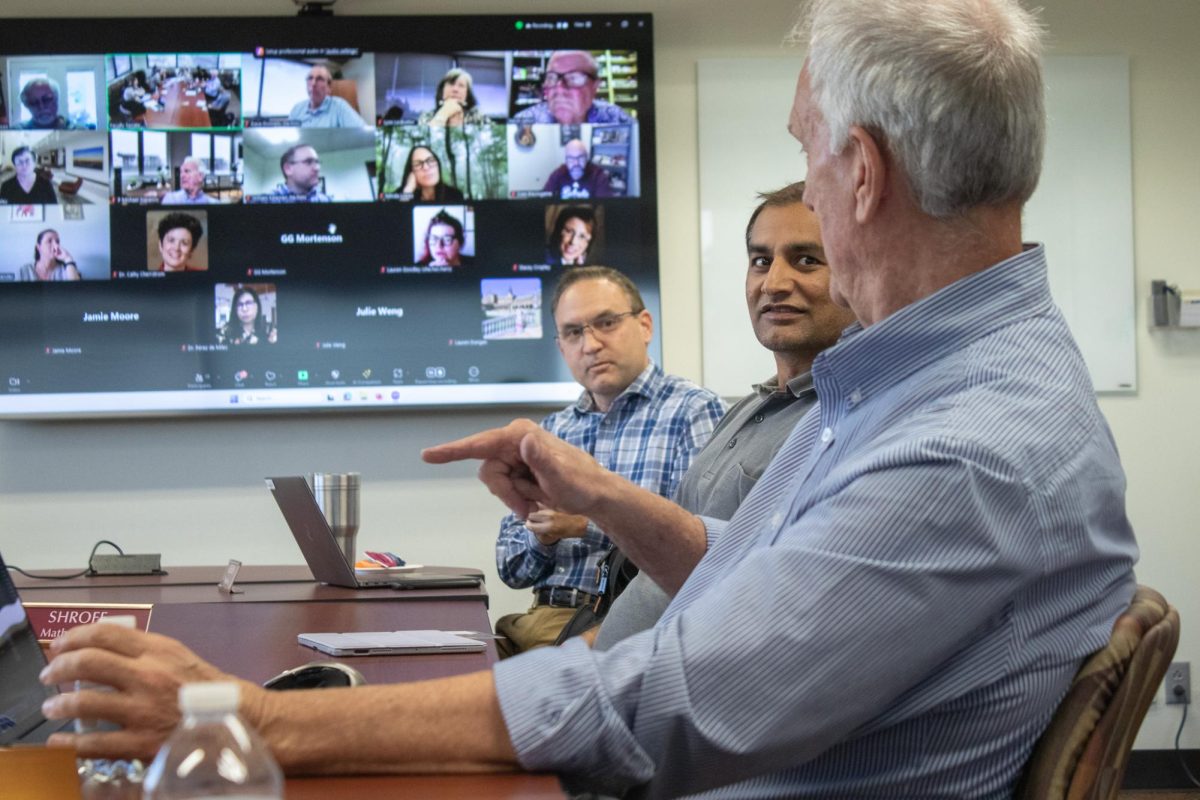Texas State’s Parking Services have fully implemented a digital and sticker-less replacement to its current parking permit system, effective for the 2019-2020 academic year.
The new take on parking permits provides a versatile online parking portal, phasing out of traditional physical parking permits. Additionally, in-person purchases of permits at the parking services office will be eliminated.
These new features are courtesy of software called AIMS, advertised as a comprehensive parking management system. EDC Corporation, which created the software, has been contacted by Texas State and specializes in the parking industry.
The new technology allowing for the elimination of physical permits — License Plate Recognition — effectively substitutes customers’ unique license plate numbers as the permit.
Stephen Prentice, associate director of parking services, said how the department will utilize the tools and effectiveness of LPR.
“(Parking services employees) have the ability to capture license plates with a handheld iPad — where they can take a picture — or with capture devices that can be attached to our vehicles,” Prentice said. “These cameras are attached to two sides of our vehicles and, going up to 40 mph, can capture and run license plates through our systems to see whether or not they are in violation.”
Prentice said this capture system works in tandem with an accurate global positioning system to determine which lot is being surveyed. This cross-references the information with the time, what pass the vehicle owner has purchased and determines if the vehicle belongs to a student or faculty member to best conclude if there has been a violation.
“All of the parking lots are programmed in the GPS so if we are driving through a residence hall lot and are scanning, the system will flag any commuters that have parked in the lot,” Prentice said. “We’ll double-check to ensure accuracy, and then issue a ticket.”
The introduction of the parking portal, which became active last year to aid in the transition to a permit-less system, streamlines parking services for the students and faculty. The portal allows customers to purchase permits, pay citations, add and change vehicles and view any fees that may have been accrued.
Texas State Director of Transportation Services Steven Herrera said this new digital permit system will help his department better serve the student body and faculty by eliminating lines and mail-in permits.
“One of the biggest opportunities is for improved customer service,” Herrera said. “It’s now all online — people will not have to wait in line or for a permit to be mailed to their residence. (The digital permit) is immediately active after it has been purchased.”
Herrera said switching to an exclusively online system has added some quality-of-life additions not seen in the past process, including an easier way to amend vehicles within the system.
“Students can only register one vehicle per permit, but we allow for vehicles to be changed and updated up to three times during the duration of the semester at no charge,” Herrera said. “If you are using a rental car or a parent’s vehicle for a period of time, you are able to make this adjustment online without coming to the office.”
Violet Martinez, public relations junior, said she believes this revamped system will relieve some stress physical permits caused both students and faculty.
“I think (AIMS) is a good change because last year I bought my permit late and was nervous I would not get it in the mail in time,” Martinez said. “But now it is great because the second I purchase it online, the permit is activated.”
Texas State will be joining Texas Tech University, A&M University, Penn State and several other institutions that utilize AIMS or similar systems. Many municipalities, including the City of Las Vegas, Nevada and Hanover, New Hampshire, use this program in varying degrees.
More information about the digital permits can be found on parking Service’s online FAQs and by watching the tutorial video created by the department.
Categories:
Parking Services goes digital
August 30, 2019
As of the fall 2019 semester, with the addition of a new license plate recognition system, Parking Services will no longer require physical hang tags to be present in vehicles parking on campus.
0
Donate to The University Star
Your donation will support the student journalists of Texas State University. Your contribution will allow us to purchase equipment and cover our annual website hosting costs.
More to Discover


